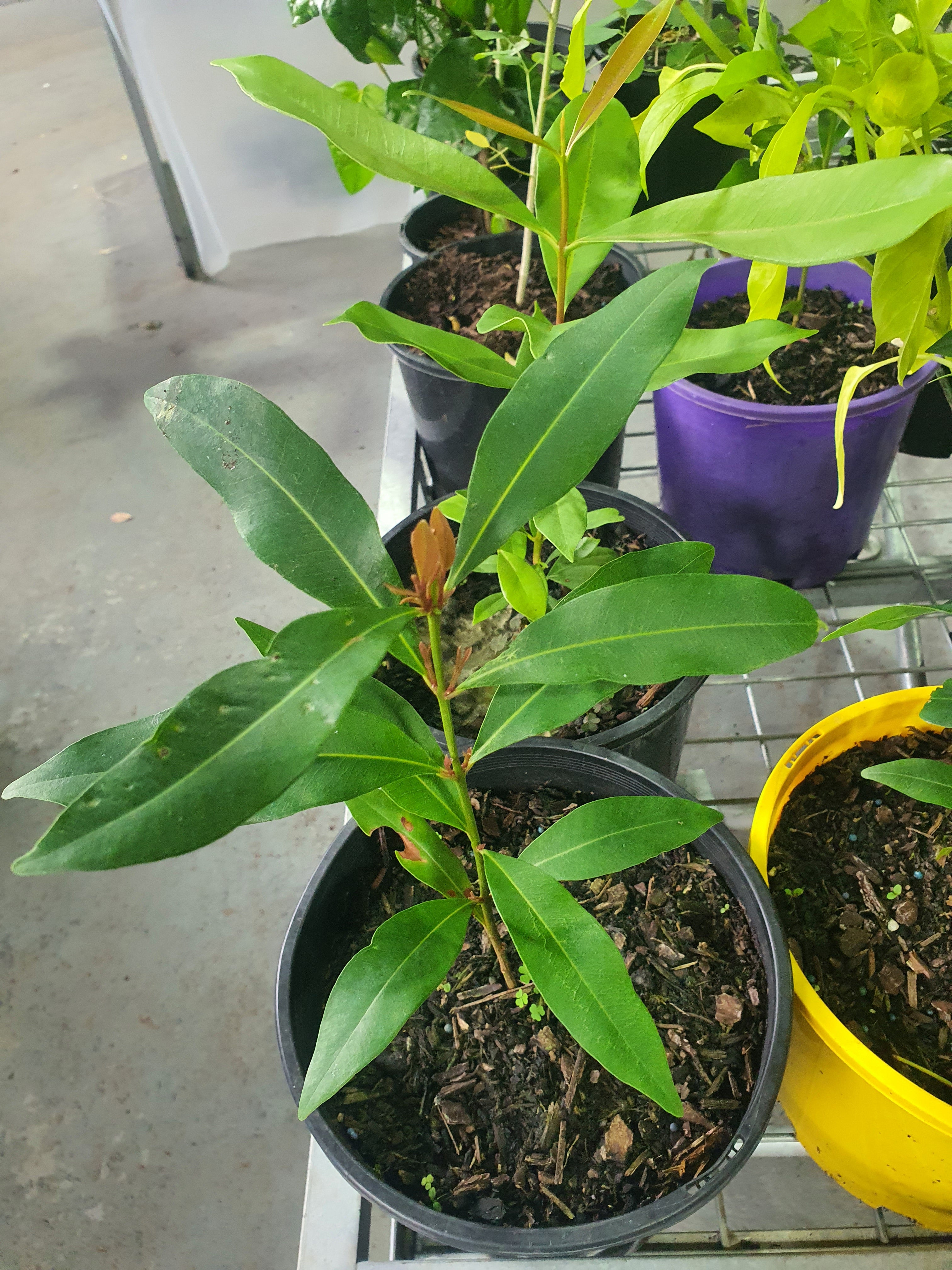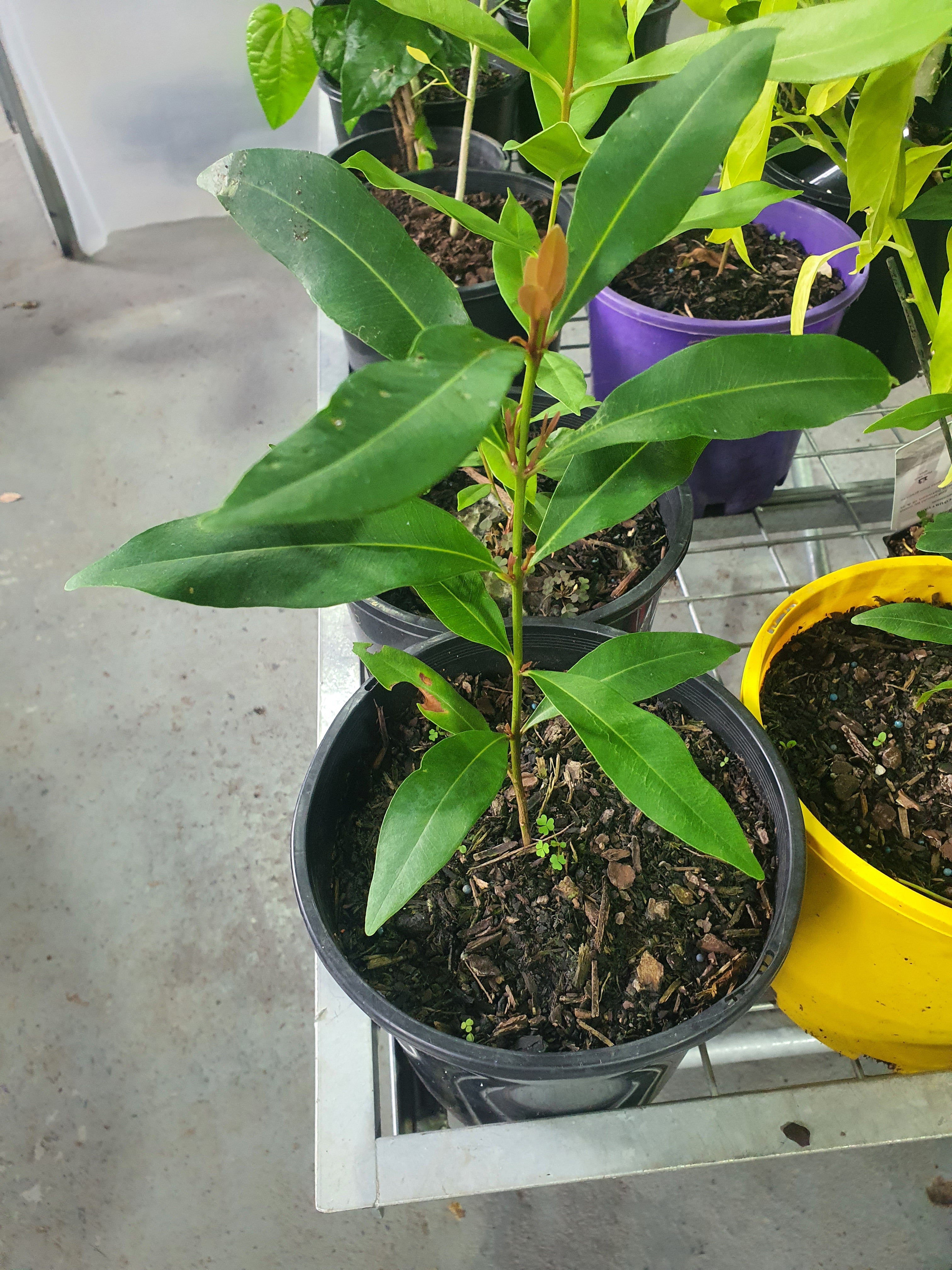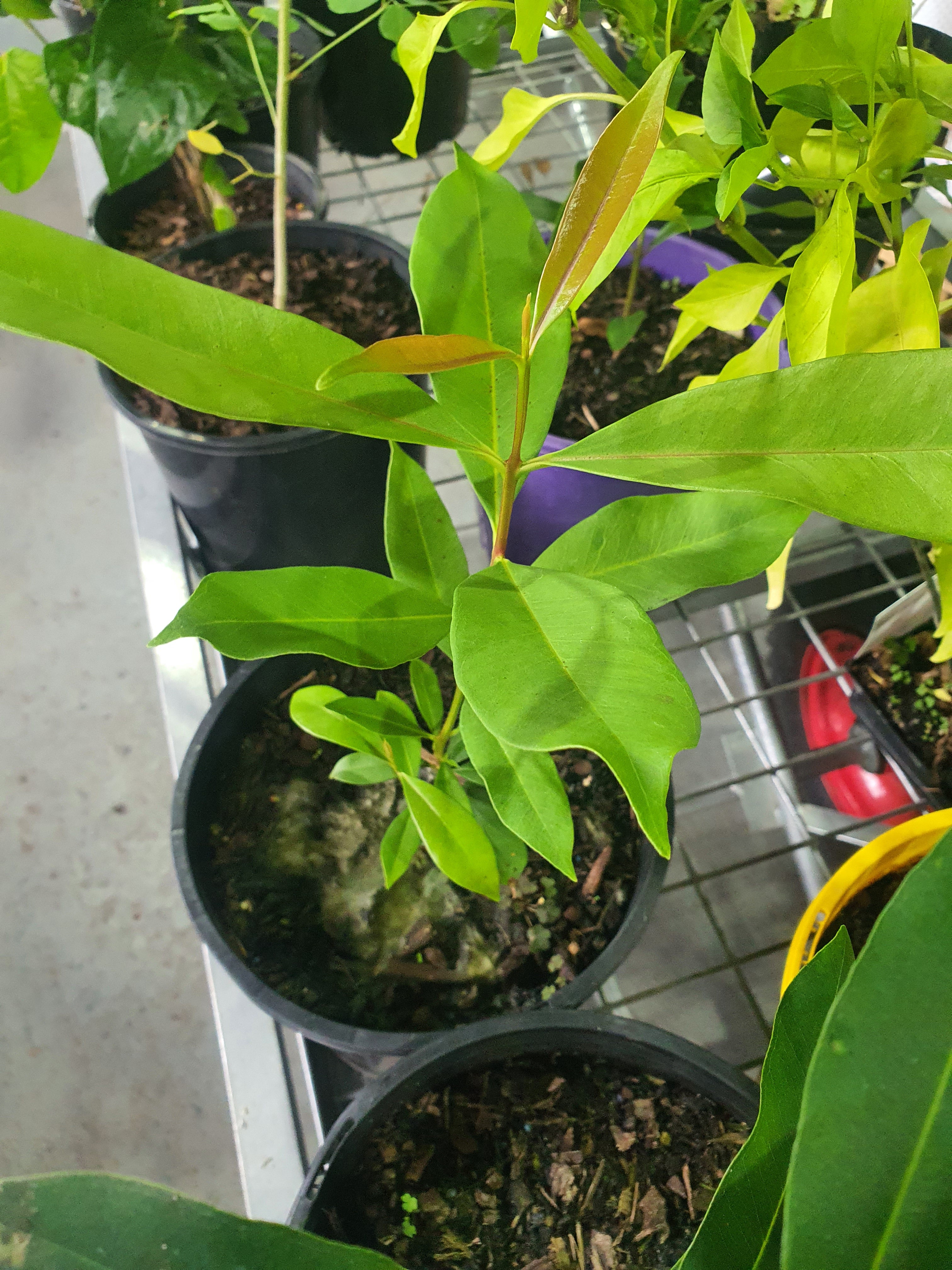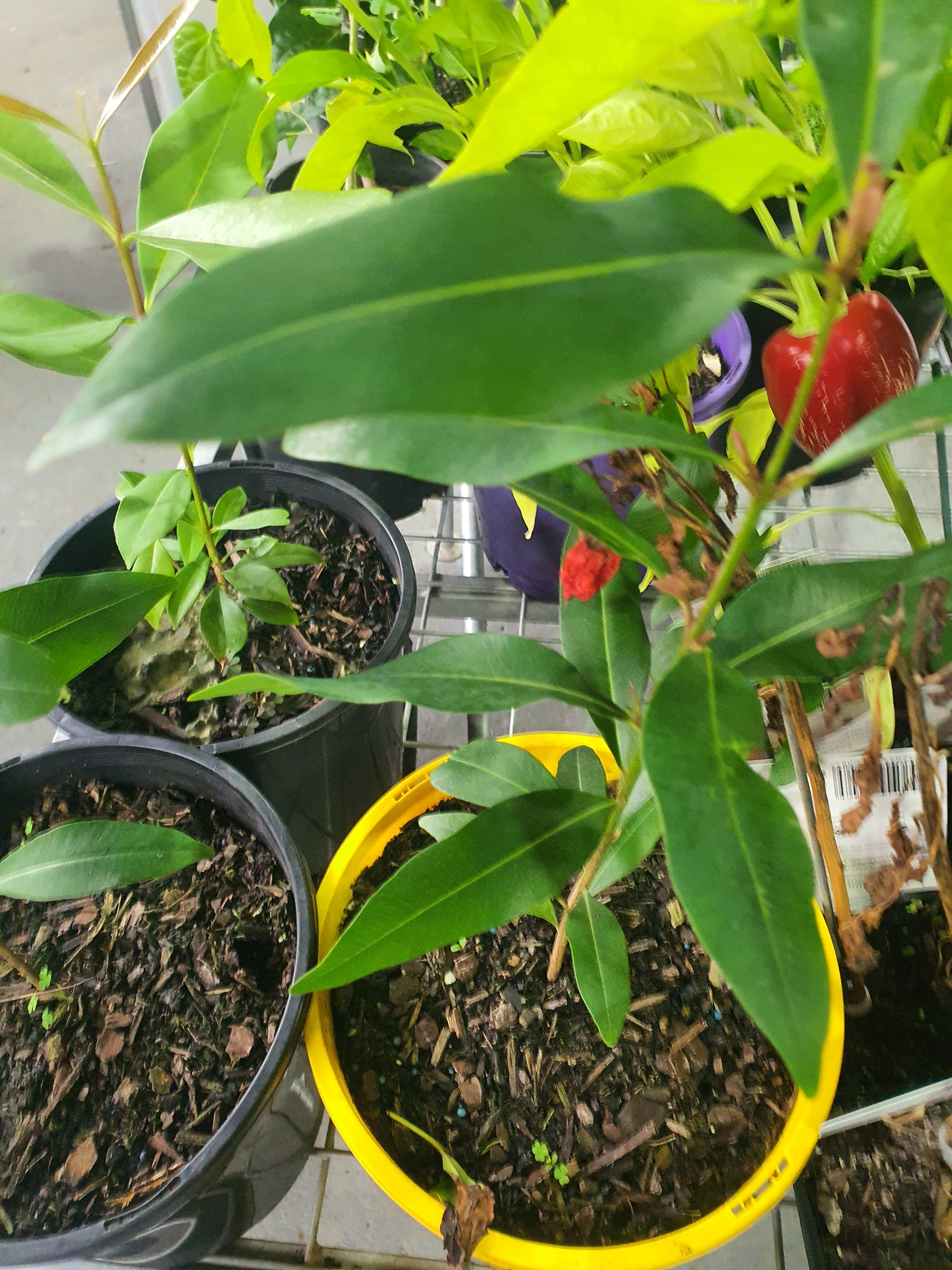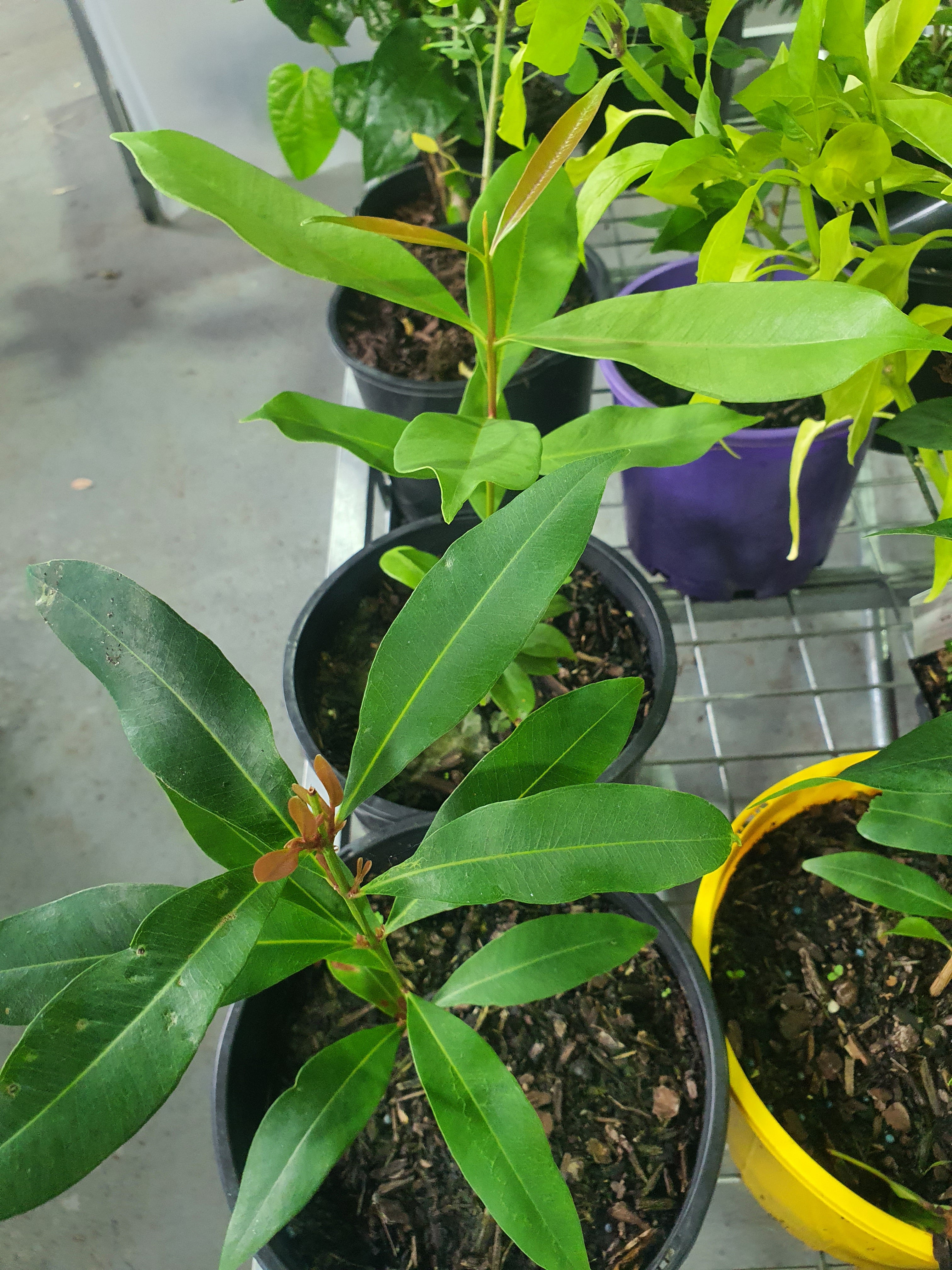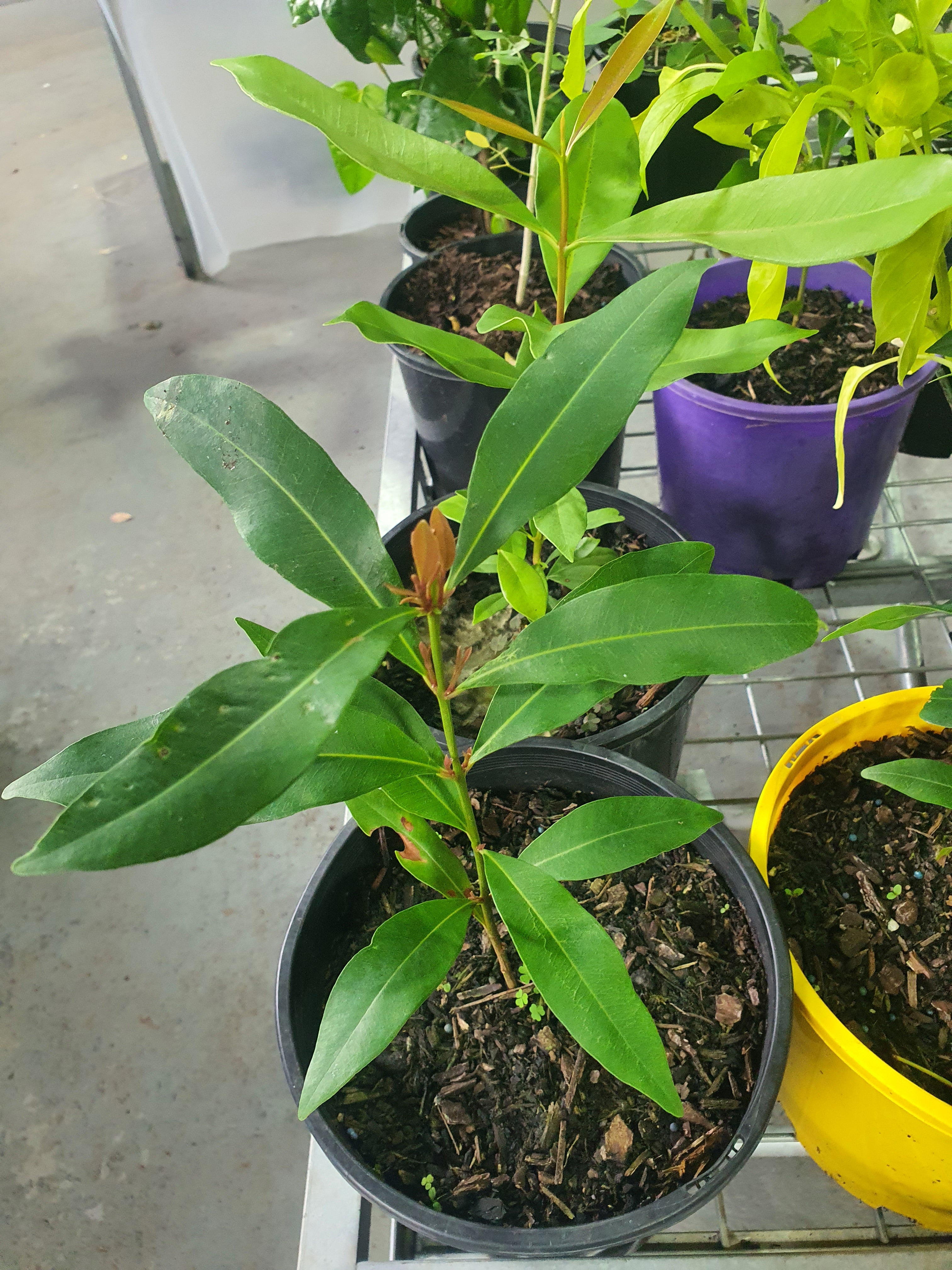Description
Jamun Plant for Small Spaces
The Jamun plant (Syzygium cumini), also known as Indian blackberry or Java plum, is a tropical evergreen tree native to the Indian subcontinent. It belongs to the Myrtaceae family and produces small, dark purple to black fruits that are commonly eaten raw or used in pickles. The plant can grow up to 15 meters tall, but it's often pruned to kept smaller for easier harvesting.
Growing Specifications:
- Height: 5 to 15 meters (can be pruned for a more manageable height).
- Spread: About 5 meters wide.
- Leaves: The leaves are shiny, dark green, and leathery.
- Flowers: Small, white flowers that bloom in clusters.
- Fruits: The round, dark purple fruit (Jamun) has a sweet, astringent flavor. It ripens from green to dark purple, and the edible fruit contains a one large seed.
Suitable Garden for Jamun:
- Climate: Jamun trees thrive in tropical and subtropical climates. They prefer warm temperatures and are drought-tolerant once established. They need good sunlight for optimal growth.
- Soil Type: Well-drained, loamy, or sandy soil is best.
- Space: Since the tree grows large, it requires large space. A garden with wide open areas, preferably in a full sun location, is ideal.
- Watering: Regular watering is required, but it can stand short dry spells once it matures.
Features and Benefits:
- Nutrient-Rich Fruit: Jamun fruits are packed with antioxidants, vitamins (especially Vitamin C), minerals (such as potassium, iron), and fiber. The fruit is often consumed for its medicinal properties, especially for managing blood sugar levels.
- Medicinal Value: The leaves, seeds, and fruits of the Jamun plant are traditionally used in Ayurvedic medicine to help treat various conditions like diabetes, digestive problems, and skin ailments.
- Shade Provider: Being a big tree with a dense canopy, it provides great shade for gardens and parks, enhancing the overall landscape.
Growing Requirements:
- Sunlight: Full sunlight for at least 4-6 hours a day is essential for healthy growth and fruiting.
- Watering: Regular watering is necessary, especially in hot periods. However, the tree is drought-resistant once mature, and overwatering should be avoided to prevent root rot.
- Temperature: Prefers tropical to subtropical climates with temperatures between 21°C to 30°C . It can also tolerate occasional low temperatures.
- Fertilization: Organic fertilizers or premium potting mix can be applied during the growing season to promote healthy growth. Slow-release fertilizers rich in nitrogen, phosphorus, and potassium are beneficial.
- Pruning: Good to prune the tree regularly to maintain shape and size, as well as to remove any dead or damaged branches/ leaves.
Why Choose Jamun?
- Health Benefits: The fruits and other parts of the plant are known for their medicinal properties, especially in controlling diabetes and promoting overall health.
- Low Maintenance: Once established, Jamun trees require only minimal maintenance and can thrive even in poor soil and also dry conditions.
- Ornamental and Functional: Besides being a fruit-bearing tree, the Jamun provides good shade and add beauty to gardens, making it a versatile choice for landscaping.

